eyelash glue_EG152
Negotiable Min Order Quantity Unit
- Required Quantity
-
- Place of Origin
- South Korea
- Brand name
- KCOSFACTORY
- Payment Terms
- T/T,Western Union
- Production method
- Negotiable
- Shipping / Lead Time
- Negotiable / Negotiable
- Keyword
- eyelash, eyelash adhesive, eyelahs glue
- Category
- Other Personal Care

KcosFactory
- Verified Certificate
-
12

| Product name | eyelash glue_EG152 | Certification | - |
|---|---|---|---|
| Category | Other Personal Care | Ingredients | - |
| Keyword | eyelash , eyelash adhesive , eyelahs glue | Unit Size | - |
| Brand name | KCOSFACTORY | Unit Weigh | - |
| origin | South Korea | Stock | - |
| Supply type | - | HS code | - |
Product Information
TYPE : Eyelash Glue
Net. 5g [ .17oz. ]
Plastic bottle with (brush and stick) applicator
| Material Safety Data Sheet(MSDS) | ||||||
| 1. Chemicals and Manufacturer Information | ||||||
| A. Product Name: Eyelashes Glue | ||||||
| B. General Chemical Property: 2-Ethylhexyl acrylate | ||||||
| C. Product Use: For adhesion | ||||||
| D. Manufacturer and Address : KcosFactory Taelim Bld, 24, Inha-ro 507 beon-gil, Namdong-gu, Incheon, Korea | ||||||
| E. Time of Revision: 0 | ||||||
| F.Last Modification: January 05, 2015 | ||||||
| 2. Name of Ingredients and Content | ||||||
| Name of Chemical | CAS No. | Content(%) | ||||
| 2-Ethylhexyl acrylate | 103-11-7 | 55 | ||||
| WATER | 7732-18-5 | 40.98 | ||||
| PROPYLENE GLYCOL | 57-55-6 | 4 | ||||
| P-ANISIC ACID | 100-09-4 | 0.02 | ||||
| 3. Risk and Harmful Effect | ||||||
| A. Urgent risk, Harm information: No data | ||||||
| B. Impact on eyes: likely to cause infection on eye muscous membrane upon contact | ||||||
| C. Impact on skin: likely to cause infection upon a long-term contact with skin | ||||||
| D. Impact of inhalation: harmful in case of a long-term inhalation | ||||||
| E. Impact of intake: harmful in case of intake | ||||||
| F. Chronic symptoms and impacts: No data | ||||||
| 4. How to Take Emergency Measure | ||||||
| A. Contact with skin: take off clothes and shoes polluted and wash off the regions contacted until no chemical remains | ||||||
| with soap or soft detergent and much water.(for 15 to 20 min.) | ||||||
| B. Contact with eyes: wash off with much water sufficiently turning over eyelashes until no chemical remains and wash | ||||||
| (for15 to 20 min.) | ||||||
| C. Inhalation: Move the patient to a place with fresh air immediately and keep him or her warm and relax. | ||||||
| In case of no breathing or irregular breathing, try artificial respiration. | ||||||
| D. Intake: If the patient is conscious or doesn't have spasm, induce vomitting with emetic and water. If breathing is restrained or | ||||||
| the patient doesn't vomit, pump his or her stomach carefully, | ||||||
| which should be carried out by qualified personnel. | ||||||
| E. Caution for doctor: If symptom lasts or there is any doubt, take medical actions or have specialists diagnose it as soon as possible. | ||||||
| Never provide any drink or food to person without consicousness. | ||||||
| 5. How to Take Measure upon Explosion or Fire | ||||||
| A. Flashing point: N/A(same as water) | ||||||
| B. Spontaneous combustion point: N/A(same as water) | ||||||
| C. Lowest/Highest limits of ignition: N/A (same as water) | ||||||
| D. Classification by Fire Service Act: N/A (same as water) | ||||||
| E. Fire extinguisher: water and various extinguishers | ||||||
| F. Harmful materials upon combustion: No Data | ||||||
| G. Fire extinguisher never to be used: No Data | ||||||
| 6. Hot wot Take Measure upon Leak Accident | ||||||
| A. Measures necessary to protect body | ||||||
| -> Put on appropriate personal protection outfits upon operation (See Clause 8) | ||||||
| B. Measures necessary to protect environment | ||||||
| -> Prevent from flowing into overflow or river, and in case of pollution of sewer, river or lake, | ||||||
| immediately contact with the company handling this in the city and environment-related institutions. | ||||||
| C. How to purify or remove it | ||||||
| -> Absorb or control the leak with incombustible materials such as sand and soil, etc. | ||||||
| -> Clean with washing liquid. | ||||||
| -> Put container outside the building and treat it according to the method of abandonment. (See Clause 13) | ||||||
| -> Do not use water since it has strong dispersion force. | ||||||
| 7. How to Handle and Store | ||||||
| A. Safe Handling Method: Do not have it contact with skin and eyes and handle wearing rubber gloves, mask and | ||||||
| protection glasses. | ||||||
| B. Storing Method: Treat with the container not to be spilled and to be injured carefully. | ||||||
| Store it in a dry place with good ventilation, distant from direct ray of sunlight or pollution source. | ||||||
| Collect it tightly not to fall or scatter and store it on the concrete or solid ground without permeation | ||||||
| and do not stack palettes more than 3 stairs. | ||||||
| Keep the container sealed tightly, and be careful when resealing the opened container, | ||||||
| and keep the upright position to prevent leakage. | ||||||
| Since it contains much water, keep it at the temp. between 5℃ and 35℃ not to be frozen. | ||||||
| 8. Exposure Prevention and Personal Protection Outfits | ||||||
| A. Technological management: Block air partially or ventilate properly. | ||||||
| B. Respiration organ protection: Should wear respiration protection outfits such as mask for organic gas and air inhaler. | ||||||
| C. Eye protection: Wear protection glasses to protect eyes from the scattering of liquid. | ||||||
| D. Hand protection: Should put on appropriate protection gloves when mixing or handling. | ||||||
| E. Body protection: Wear work outfits to protect arms, legs and body and do not expose skin. | ||||||
| F. Caution for hygiene: Install eye cleaning fountain equipment in a close place for emergency. | ||||||
| 9. Physical and Chemical Properties | ||||||
| A. Appearance: Milk-white EMULSION | ||||||
| B. Smell: stink peculiar to Polymer | ||||||
| C. pH : 7.0 ~ 8.0 | ||||||
| D. Dissolution rate: No Data | ||||||
| E. Boiling point/the range: 100℃ (similar to that of water) | ||||||
| F. Melting point/the range: 0℃ (similar to that of water) | ||||||
| G. Explosiveness: N/A ( same as water ) | ||||||
| H. Oxidization: N/A | ||||||
| I. Steam pressure: Approximately 23hPa at 20℃ (similar to that of water) | ||||||
| J. Gravity: Approximately 1.05 | ||||||
| K. Distribution coefficient: No Data | ||||||
| L. Steam density: Approximately over 1( air - 1 ) | ||||||
| M. Viscosity: 1,000 ~ 1,200 cps | ||||||
| N. Molecular weight: 400,000 - 600,000 | ||||||
| 10. Stability and Responsivenss | ||||||
| A. Chemical stability: Stable if observing cautions for handling and storing | ||||||
| B. Condition and materials to avoid: Strong acidity, strong alkalinity and strong oxidizer | ||||||
| C. Harmful materials generated during dissolution: No Data | ||||||
| D. Possible harmful materials upon reaction: No Data | ||||||
| 11. Toxicity Information | ||||||
| A. Acute oral toxicity: No Data | ||||||
| B. Acute inhalation toxicity: No Data | ||||||
| C. Pseudo-acute toxicity: No Data | ||||||
| D. Chronic toxicity: No Data | ||||||
| E. Mutagenic toxicity: No Data | ||||||
| F. Impact on next generation (procreation toxicity) : No Data | ||||||
| G. Carcinogenic impact: No Data | ||||||
| 12. Impact on Environment | ||||||
| A. Harmful materials for enviroment: air, water quality, soil and ocean pollutions | ||||||
| B. Aquatic and ecological toxicity: No Data | ||||||
| C. Soil migration: No data | ||||||
| D. remaining and dissolution: Not fast biodegraded but main constituents are solidified and moisture evaporates and disappear; | ||||||
| howver, there are ingredients remaining and being accumulated in environment in some products. | ||||||
| E. Possible accumulation in body of animals and plants: No Data | ||||||
| 13. Caution for Abandoment | ||||||
| A. Regulations under Waste Management Act: Should observe regulations of the government and local governments | ||||||
| B. Abandonment method: Handle according to the standard of Environment Management Act | ||||||
| C. Caution for Abandonment: Do not let it flow into sewer or river. | ||||||
| 14. Information Needed for Transportation | ||||||
| A. Classification and regulation by the rules on shipping and storing of dangerous article under Ship Safety Act: No Data | ||||||
| B. Classification and regulation by the rules on transportation of foreign countries: No Data | ||||||
| C. Caution for transportation: See Clause 7 | ||||||
| 15. Current State of Legal Regulations | ||||||
| A. Regulation by Industrial Safety and Health Act: Article 41 | ||||||
| B. Harmful Chemical Managmenet Act: No Provision | ||||||
| 16. Other References | ||||||
| This MSDS has been prepared on the basis of Notification of the Ministry of Labor, No. 1996-12, Industrial Safety and | ||||||
| Health Act, Fire-figthing Act and data held by our company(Domestic and Overseas MSDS) provided data from | ||||||
| Korea Industrial Safety Corporation | ||||||
| References and Works Cited | ||||||
| - Standards for Preparation and Equipment of Material Safety and Health Data (Ministry of Labor, Noficiation No. 96-12) | ||||||
| - Guideline for Translation of Material Safety and Health Data (Korea Industrial Safety Corporation) | ||||||
| - Practice of Material Safety and Health Data Preparation (Ministry of Labor and Korea Industrial Safety Corporation) | ||||||
----------------------------------------------------------------------------------------------------------
Made in Korea
B2B Trade
| Price (FOB) | Negotiable | transportation | - |
|---|---|---|---|
| MOQ | Negotiable | Leadtime | Negotiable |
| Payment Options | T/T,Western Union | Shipping time | Negotiable |

- President
- Ray Lee
- Address
- 3F, Taelim Building, 24, Inha-ro 507 beon-gil, Namdong-gu, Incheon, Korea Zip:21574
- Product Category
- Beauty Equipment,Beauty Products Agents,Nail Art,Other Beauty Equipment,Other Personal Care
- Year Established
- 2001
- No. of Total Employees
- 1-50
- Company introduction
-
<p>
KcosFactory Co. as the largest Nail Files, Buffers & Pedicures manufacturer in South Korea was founded in 2001,
and is committed from its foundation to offer the best quality products at the most competitive price to our valuable customers.
We supply wide variety of the highest quality nail & foot care products to more than 50 countries, specialized in manufacturing salon purpose nail files, buffers, salon tools with a very high reputation.
KcosFactory Co. is continuing to do its best as a manufacturing company with the completion of its new research and producing facility products to the marketplace.
We’re always looking for long term reliable relationship. Please join.
- Main Product
Related Products
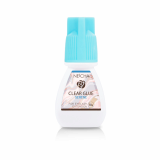
NEICHA CLEAR GLUE SERENE

Deesse Mask, LED Mask
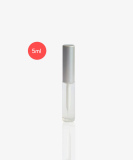
eyelash essence
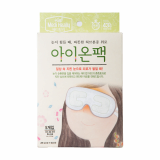
[Medi Heally] Warm Herbal Eye Patch - Eye dryness care
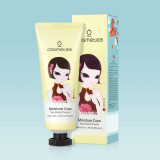
[Cosmetea] Moisture care tea hand cream


































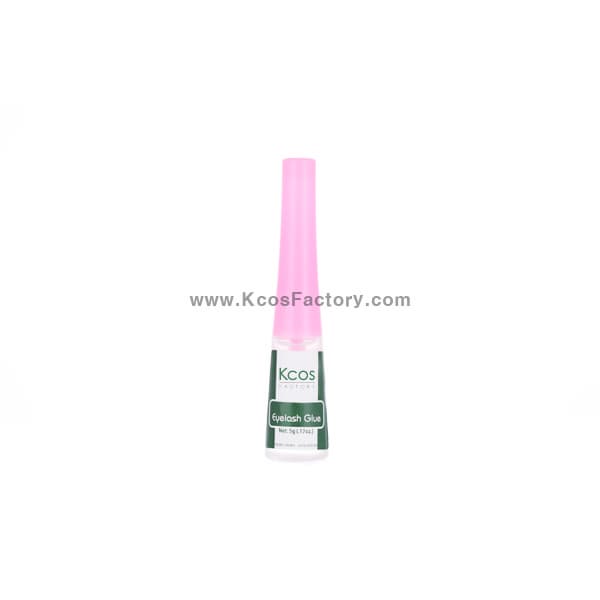
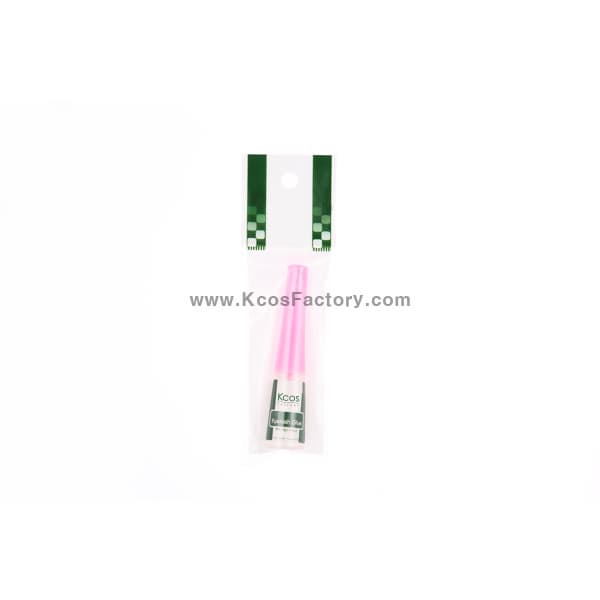
 South Korea
South Korea



